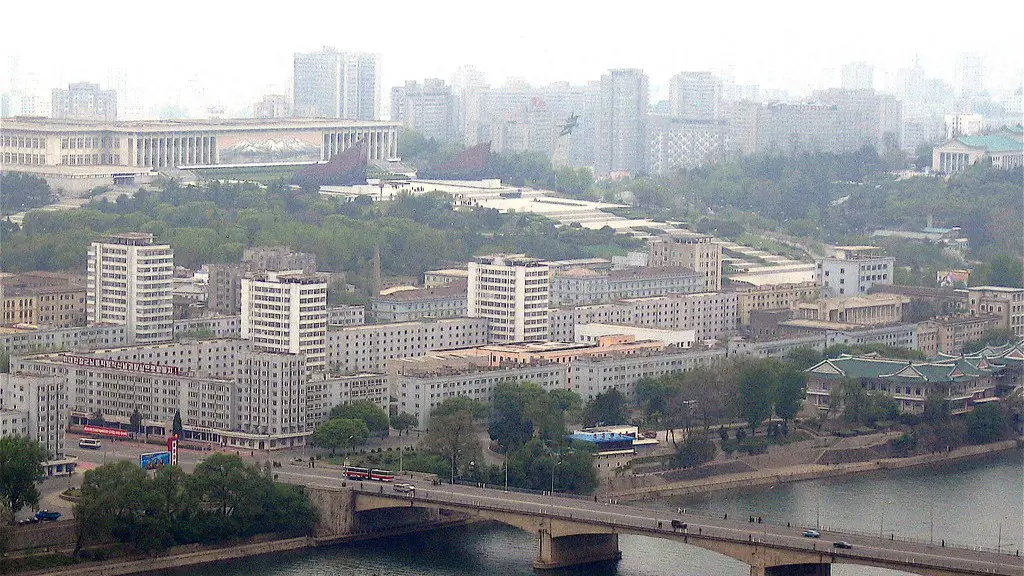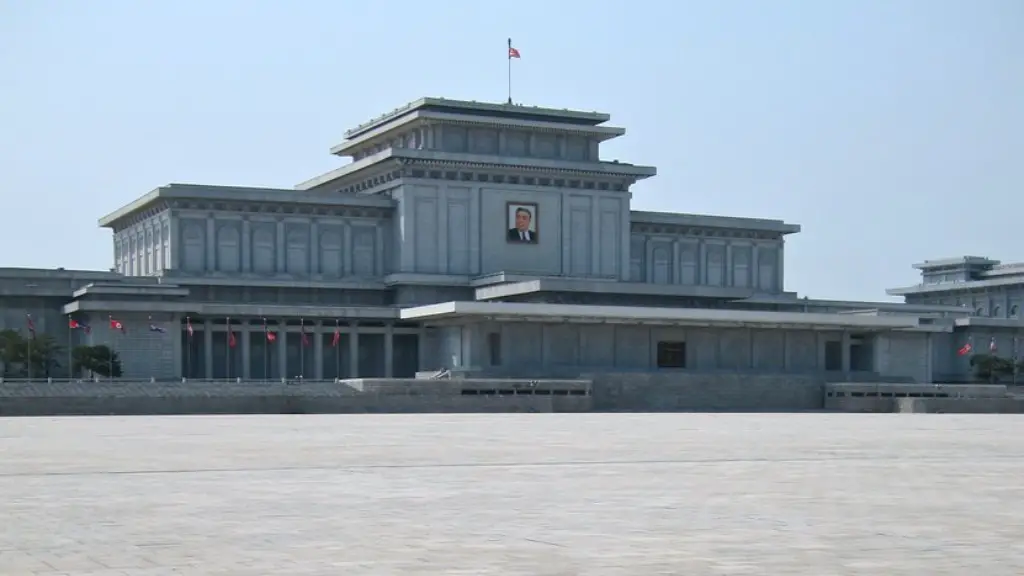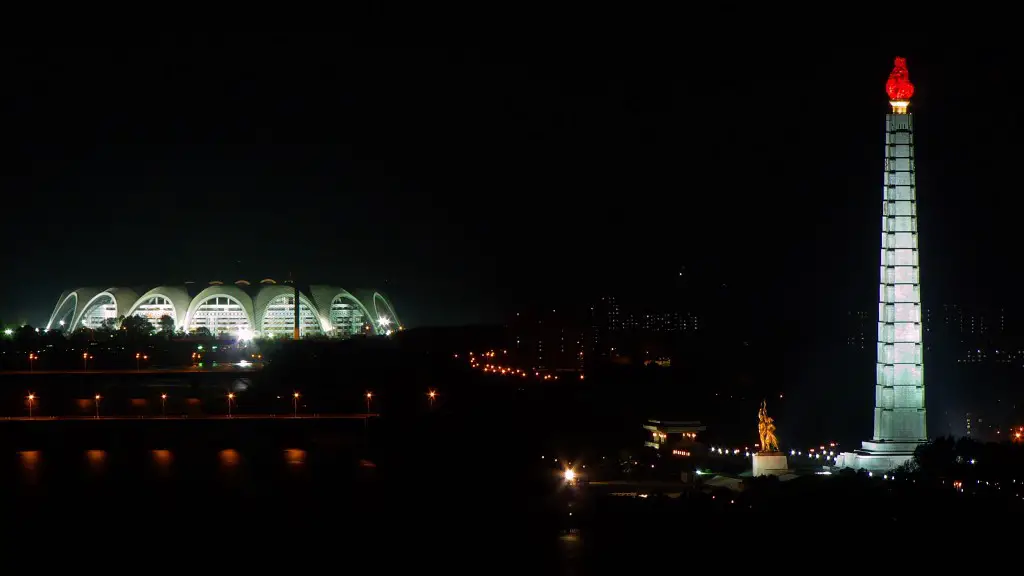North Korea has one of the strictest and most oppressive governments in the world. People living within its borders are subject to the whims of a dictatorial leader, and are barred from freely leaving their own country by an array of laws that protect and control the nation from the outside world. So, is it possible for someone born in North Korea to receive permission to leave and visit or even settle somewhere else?
It is extremely difficult for someone born in North Korea to escape by themselves. Passport applications are virtually impossible to obtain, and leaving without permission is treated as a serious offense punishable by hefty prison sentences or even death. Furthermore, even North Koreans with permission to travel abroad rarely receive permission to stay permanently. Due to these restrictions, the vast majority of North Korean citizens remain inside their own country’s borders.
Most North Koreans who do manage to leave the country do so illegally. Large portions of the country’s population lives near the Chinese and Russian borders, and some North Koreans opt to cross over and remain in either of the two countries rather than return to the oppressive measure of their home nation. Many of these people pay smugglers or traffickers to take them over the borders, and take refuge in foreign nations with the help of family members and charities. So, while it is technically possible to leave North Korea, it requires a great deal of luck, courage, and financial aid.
For those lucky enough to obtain exile abroad, life in the foreign country may not necessarily be easy. North Korean defectors face numerous social and cultural challenges as they try to adapt to their new lives in a different country. Language barriers, financial struggles, and even discrimination in some cases make it hard for these people to fully integrate into their new societies. Moreover, many defectors are also stationed for years at refugee centers in order to receive suitable housing and healthcare before eventually being allowed to fully settle in their new home.
The majority of North Koreans who manage to escape their homeland by illegal means are looking for freedom from political and economic oppression. Sadly, this petition is often not granted. Even those with legal paperwork to enter another country usually have to start from scratch and struggle to gain permanent residency or even citizenship.
Other Perspective
Some experts are of the opinion that if North Koreans were given the chance to travel abroad, it could prove beneficial to the nation and to the North Korean people themselves. Allowing selected North Korea citizens to leave the country could represent a cultural exchange that could give the nation an opportunity to learn more about the world beyond its borders. Moreover, increased knowledge of other societies could also bring some degree of reform and modernization to a nation that remains mostly off the grid in terms of global news and foreign relations.
In addition, those North Koreans with permission to travel could also prove instrumental to the development of the nation’s economy. People from North Korea who venture abroad often return with useful knowledge, money, and contacts that could benefit the entire nation. Thus, easing the restrictions on international travels for some North Koreans could open up a range of economic opportunities for their homeland as well.
Economic Factors
Economic factors play a large role in the global movement of people. One reason why North Koreans are not allowed to visit or settle abroad is because their country requires foreign currency. Thus, if North Koreans were allowed to leave and settle in other countries, they’d be taking valuable money away from North Korea. This could prove detrimental to the nation’s financial health, so the government is adamant to prevent its citizens from leaving.
At the same time, North Koreans view immigration as a way to earn money in a stable economic environment. For those with low wages, low benefits, and limited opportunities at home, leaving North Korea may present a way to improve their living standards by relocating to a new country. For these individuals, security and economic stability may be more important than remaining in their homeland. Despite adversity, some of these defectors travel to China, Russia, and even South Korea, in search of better living conditions.
Political Reasons
Politics also play a part in North Korea’s restrictions on foreign travel. North Korea views immigrants as a threat to their system of government and state power, so they limit the number of citizens allowed to leave the country. North Korea also fears that they may not be able to return to their homeland if they leave, as a number of people seeking to defect have been successfully granted political asylum in another country.
In addition, the government is adamant to protect the nation’s military secrets and valuable information from foreign nations, as well as prevent citizens from obtaining classified information from outside sources. By controlling the outflow of information from North Korea, the government can effectively protect their own interests and the interests of the nation.
Cultural Impacts
Controlling the flow of North Koreans to other countries has a cultural impact as well. For example, when North Koreans move abroad, they often lose their connection to their home culture and identity. As a result, traditional North Korean values, beliefs, and even language are often forgotten, resulting in a gradual erosion of the North Korean culture.}
At the same time, people who travel abroad often return to North Korea with new values, knowledge, and ideas. This can lead to a reshaping of the North Korean society over time, a change that could further hinder the country’s development in the long run.
Human Rights
The North Korean government has also been accused of violating the human rights of its citizens. In particular, they’ve been accused of failing to uphold their international obligations to protect the freedom of movement. People born in North Korea are subjected to unreasonable governmental control, and are not free to leave their country for whatever purpose or destination of their choice.
The government is also guilty of restricting the rights of their citizens to travel and emigrate by punishing them if they do so without permission. This includes death penalty, brutality and imprisonment. In addition, North Koreans are often denied rights such as freedom of speech, press, and access to education. This creates an oppressive environment where people are deprived of the rights they should be afforded as per international human rights laws.
International Pressure
International pressure on North Korea has increased in recent years in an attempt to make the nation adhere to international human rights standards. This includes sanctions and tough diplomacy, such as the United Nations’ Universal Periodic Review (UPR), which calls for freedom of movement for all North Koreans in the form of passports, access to the internet and the ability to travel overseas.
The UPR also requests that the North Korean government allow its citizens to be able to leave their country for a variety of reasons and that they abolish the oppressive tactics they use to control the population and prevent them from leaving. Recently, North Korea has also pledged to give its citizens personal and travel rights and enact certain reforms, although if and when these changes are received remains to be seen.
Conclusion
Although it is possible for North Koreans to leave their country, it is a difficult, dangerous and often expensive process. Those born in North Korea face difficulties in obtaining the necessary permission, often resorting to illegal means in order to escape their homeland by crossing the borders of China or Russia. Once abroad, these individuals often face social and cultural challenges to fully integrate into their new countries.
Current restrictions on foreign travel placed by North Korea’s government are mainly in place for economic and political interests, as well as major concerns over the cultural impact of allowing too many immigration from North Korea. In recent years, international pressure from organizations such as the United Nations has urged the nation to provide their citizens with greater freedom of movement, but it remains to be seen if these calls for reform will be heeded.



